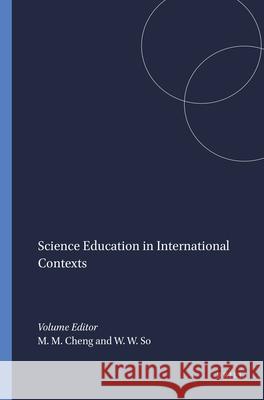Science Education in International Contexts » książka
Science Education in International Contexts
ISBN-13: 9789460914256 / Angielski / Miękka / 2011 / 190 str.
Science Education in International Contexts
ISBN-13: 9789460914256 / Angielski / Miękka / 2011 / 190 str.
(netto: 178,07 VAT: 5%)
Najniższa cena z 30 dni: 179,73
ok. 22 dni roboczych.
Darmowa dostawa!
This book presents an international perspective on examining and putting into practice new innovations in science education. The chapters are organized into three parts, each of which addresses a key area in science education research. Part I of this book (Students conceptual understanding of science) addresses issues related to the identification of students science concepts, and the influence of everyday understandings on the construction of science concepts. Part II (Making science concepts plausible for students) addresses the pedagogical concerns of teachers in making science ideas plausible and logical for their students. Part III (Science teacher learning) reports on science teacher learning in Australia and Hong Kong. The focus is on the interaction between research and implementation, or how theory can be realized in classroom practice, with contributions from both non-Western and non-English-speaking contexts and Western and English speaking countries. Taken together, the papers have a common focus on the relationship or integration of theory and practice in science education. They demonstrate a concern to address education reform directions, putting into practice recommendations from science education research, and improving the quality of science education. The contributors of this book come from seven different areas around the world. These contributions have been essential in making the discussions in this book multi-perspective and relevant to an international audience, thus allowing it to emerge to join the international discourse on improving science education. The studies reported in this book provide insights for future research addressing science education reform directions, students learning needs and different classroom contexts. The discussions and the findings reported are relevant to science educators, teachers, student teachers, graduate students in education, curriculum developers and those responsible for education policy.











